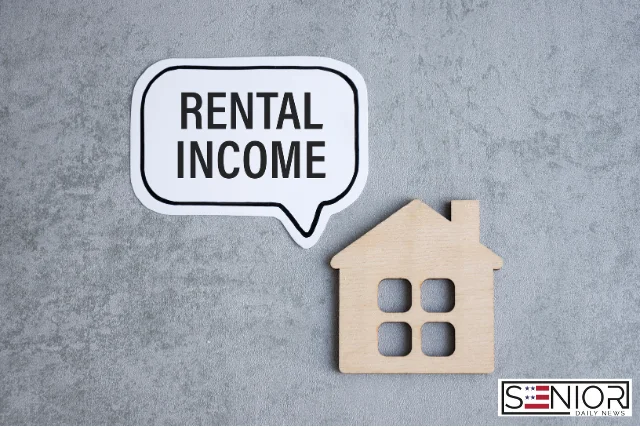How to Generate Rental Income in Retirement: A Guide for Seniors Seeking Steady Cash Flow

Retirement can be one of the most rewarding phases of life—full of freedom, new interests, and hopefully, financial peace of mind. But to maintain that peace, many seniors look for steady and reliable income streams. One increasingly popular option? Rental income.
Whether you’re downsizing and renting out your old home or considering buying a small property purely as an investment, rental income in retirement can help cover daily expenses, fight inflation, and offer a sense of financial security. This guide is designed to help you, as a senior in the United States, understand how to generate rental income—safely, smartly, and with peace of mind.
Why Consider Rental Income in Retirement?
1. Steady Cash Flow
Rental properties can provide consistent monthly income, which is especially valuable if Social Security or a pension isn’t quite enough to maintain your desired lifestyle.
2. Beating Inflation
Rental income often rises with inflation, unlike some fixed retirement incomes. This can help protect your purchasing power over time.
3. Tax Advantages
The IRS allows property owners to deduct expenses like mortgage interest, property taxes, insurance, maintenance, and even depreciation. This can make rental income more tax-efficient than other sources.
4. Wealth Preservation
Unlike stocks, real estate is a tangible asset. If maintained well, it not only produces income but can also appreciate in value over time—offering a potential legacy for your family.
Step-by-Step Guide to Generating Rental Income
Step 1: Assess Your Financial and Physical Readiness
Ask yourself:
- Can I afford the down payment or upfront investment?
- Do I want to manage the property myself or hire help?
- Is this a long-term plan or a short-term strategy?
If you’re drawing from retirement savings (like an IRA or 401(k)) to fund a rental property, consult a financial advisor to understand tax implications.
Step 2: Choose the Right Type of Property
Here are a few common options for seniors:
➤ Single-Family Homes
Ideal for long-term tenants. Easier to manage one family than multiple tenants in a multi-unit complex.
➤ Condos or Townhomes
Often part of an HOA, which handles exterior maintenance—great for seniors wanting less upkeep.
➤ Accessory Dwelling Units (ADUs)
If your property allows it, building or converting a small unit on your land can provide income while keeping you close to home.
➤ Vacation Rentals
These short-term rentals (like Airbnb) can be lucrative in tourist areas, but they do require more active management and regulation awareness.
Step 3: Decide Where to Invest
Location is everything. Here’s what to look for:
- Low property taxes
- Steady rental demand
- Proximity to hospitals, shopping, and public transportation
- Low crime rates
- Good property management availability
Tip: Consider college towns, military bases, or areas with growing senior populations—they often offer strong rental demand year-round.
Step 4: Understand the Numbers
Before purchasing a property, crunch these numbers:
- Net Operating Income (NOI): Rent minus expenses (excluding mortgage)
- Cap Rate: NOI ÷ Property Value (aim for 4%–8%)
- Cash Flow: Income left after all expenses and loan payments
A cash-flow-positive property means the rental income exceeds expenses—a must for retirees living on fixed budgets.
Step 5: Choose How to Manage the Property
As a senior, you might not want to handle midnight plumbing calls. You have two options:
1. Self-Management
Best for local properties and active retirees. It saves money but requires time and energy.
2. Property Management Company
For a fee (usually 8–12% of rental income), they’ll handle tenant screening, rent collection, maintenance, and more.
Step 6: Legal and Insurance Considerations
- Use clear lease agreements reviewed by a lawyer.
- Understand fair housing laws to avoid discrimination claims.
- Invest in landlord insurance to cover liability, property damage, and loss of rent.
- Consider forming an LLC for legal protection, especially if owning multiple properties.
Pros and Cons of Rental Income in Retirement
| Pros | Cons |
|---|---|
| Monthly passive income | Requires upfront capital |
| Tax advantages | Risk of vacancies or bad tenants |
| Real estate appreciation | Maintenance and legal liability |
| Inflation hedge | Can be time-consuming without a manager |
Alternatives: REITs for a Truly Passive Option
If physical property sounds like too much effort, consider Real Estate Investment Trusts (REITs). These are companies that own income-generating real estate and pay out dividends—some of which focus on residential or commercial properties.
Why REITs Might Work for Seniors:
- No property management
- Highly liquid (can be bought/sold like stocks)
- Consistent dividend income
- Diversification without ownership headaches
That said, REITs are subject to market risk and don’t provide the same tax benefits or control as direct property ownership.
Tips to Maximize Rental Income as a Senior
- Screen tenants carefully: Credit checks, income verification, and references are essential.
- Automate rent collection: Use online platforms for ease and accountability.
- Keep the property well-maintained: Happy tenants stay longer and take better care of your investment.
- Raise rent gradually: Stay competitive with local markets while ensuring your income keeps pace with inflation.
- Review your insurance annually: As property value and risk exposure change, your coverage should too.
Frequently Asked Questions (FAQs)
Is rental income a good idea for seniors?
Yes, rental income can be an excellent source of steady cash flow for seniors, especially when managed properly. It can supplement Social Security and savings, offering financial flexibility in retirement.
How much rental income is enough in retirement?
It depends on your living expenses and lifestyle. Some retirees use rental income to cover essentials, while others reinvest it or use it for travel and leisure.
What are the tax implications of rental income?
Rental income is taxable, but you can deduct many associated expenses. These include property taxes, maintenance, insurance, and depreciation. Always consult a tax advisor for personalized guidance.
What happens if I can’t find a tenant?
Vacancies can happen. Plan for at least 1–2 months of lost income each year and keep an emergency fund for expenses during tenant gaps.
Should I use a property manager?
If you’re not up for day-to-day management or live far from the rental property, a property manager is worth the cost for peace of mind and professional service.
Can I own rental property through my IRA?
Yes, through a self-directed IRA. However, it’s complex and comes with strict IRS rules. Always consult a financial professional before using retirement funds this way.
Image Source: Canva






